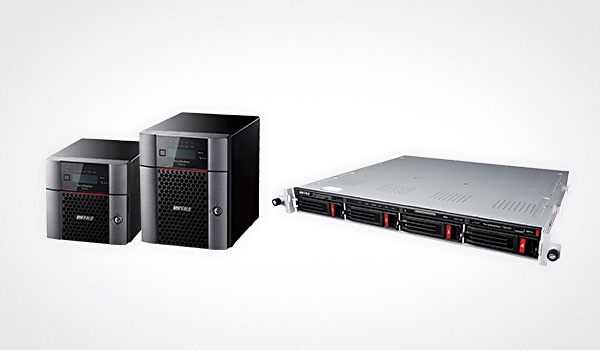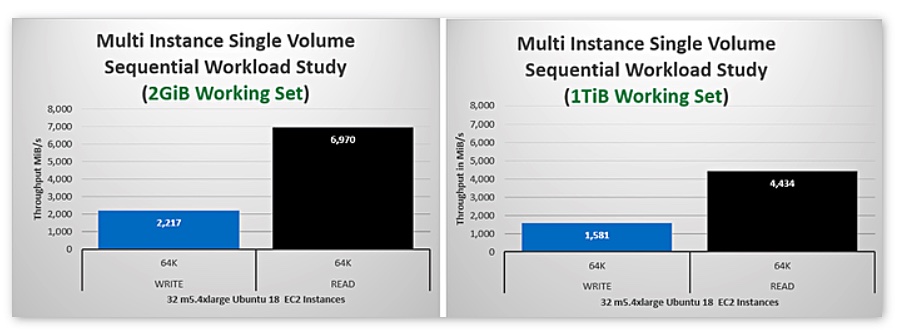Shall we begin?
Acronis goes avidly into security services
Data protector Acronis has introduced a set of cyber services offering a combination of security risk assessments, vulnerability assessments, penetration testing, incident response services and awareness training. They are customised based on an individual’s role.
According to Serguei Beloussov, Acronis CEO, cyber threat assessments, best practices and preparedness training have been too costly and complex for anyone other than large enterprises to implement. But now “with the launch of Acronis Cyber Services, we’re making enterprise-grade cyber protection solutions more accessible so every organisation can have the easy, efficient and secure cyber protection that’s needed today.”
Pay attention to the Buffalo
Buffalo EU has introduced the TeraStation 6000 NAS range for small and medium businesses. This is fitted with 8GB ECC memory and a 1.5GHz Intel Atom C3338 processor for the 6200N 2-bay desktop version and a 2.1GHz Intel Atom C3538 CPU for the 4-bay desktop (6400DN) and rackmount (6400RN) designs. It has storage options from 4TB to 32TB, a 10 GbitE network port and two 1 GbitE ports.

It has Snapshot and iSCSI Volume Backup features. Snapshot takes images of the current data and creates restore points at fixed intervals. Backed up data is stored incrementally and in block units, so that each Snapshot captures the difference from the previous one, instead of backing up full data each time. This results in an efficient use of storage space and allows for a high backup frequency.
NetApp performance on AWS speaks volumes
A NetApp blog looks at NetApp’s Cloud Volumes on AWS and their performance.
Cloud Volumes ONTAP is the ONTAP storage service running in AWS and Azure. The blog says NetApp, using FIO, saw up to 4,500MiB/s of sequential reads or 470,000 random read IOPS with a single cloud volume. It also reports up to 1,700MiB/s of sequential reads or 220,000 random read IOPS from a single EC2 instance.
The company used two separate sets of data, in its tests. One was a small 2GiB set to demonstrate theoretical maximums. The other was a larger 1TiB working set which caused IOs to traverse the entire storage subsystem, rather than rely upon data resident in storage memory.

Shorts
Secondary storage hyperconverger Cohesity announced its DataProtect and DataPlatform products have gained VMware Partner Ready for VMware Cloud on AWS validation. With Cohesity, customers can back up and recover virtual machines (VMs) running on VMware Cloud on AWS. After completing an initial backup, users can archive VM backups to Amazon S3 and Amazon Glacier for long-term retention.
A 2019 Digital Storage for Media and Entertainment Report, from Coughlin Associates, provides 253 pages of in-depth analysis of the role of digital storage in all aspects of professional media and entertainment. Projections are given out to 2024 for digital storage demand in content capture, post-production, content distribution and content archiving are provided in 63 tables and 128 figures.
Analyst house ESG has a released a Technical Validation report looking at Dell EMC’s VxRail with Xeon Scalable Processors and Optane SSDs. The report states: “ESG testing validated that Dell EMC VxRail with Intel Optane SSDs provides the high performance and low latency that business-critical, virtualized workloads demand. The consistency of performance over time was particularly notable.”
GigaOm author Enrico Signoretti has published Key Criteria for Evaluating Enterprise HCI report.
Igneous, an UDMaaS (Unstructured Data Management as a Service) startup, has used some its March $25m VC round to hire Mike O’Brien as chief revenue officer. His resume includes CEO roles and time spent at Dynatrace and Microsoft.
Microsoft wants to bring exFAT file system for SD cards and flash drives to the Linux Kernel. Read more in our sister publication The Register.
Paragon Software has released an updated Microsoft exFAT by Paragon Software driver with transparent read and write access to exFAT volumes from Linux, with additional performance optimisation for modern Linux kernels and lower CPU memory consumption.
Startup StorOne says TechData will be marketing its Storage-as-a-Service product, which uses Dell PowerEdge servers. It has achieved a total of fifty customers and a OEM partnership with an HCI supplier is likely to happen. StorONE also has a partnership with IBM concerned with small and medium business customers.
Prodigy Universal Processor developer Tachyum has joined the Compute Express Link (CXL) Consortium. CXL is a high-speed CPU-to-Device and CPU-to-Memory interconnect that offers high-bandwidth, low-latency connectivity between host processors, systems and devices, such as FPGAs, intelligent networking and storage accelerators, memory buffers, storage class memory and smart I/O devices. It joins CXL founders Alibaba, Cisco, Dell EMC, Facebook, Google, Hewlett Packard Enterprise, Huawei, Intel Corporation and Microsoft plus processor manufacturers AMD, ARM, and NVIDIA, as joint-CXL consortium members.








